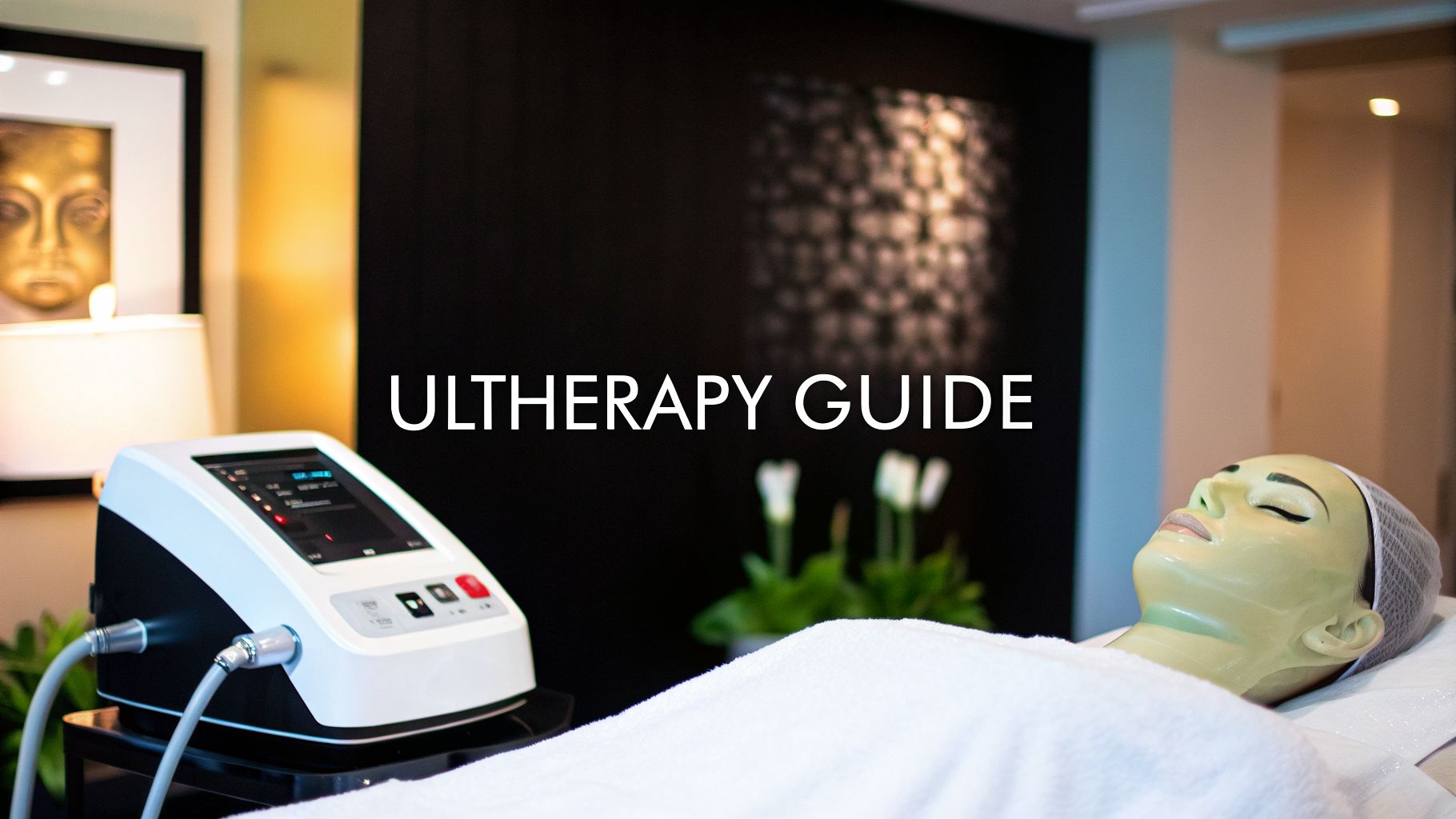
February 21, 2026
How to Prevent Keloid Scars After Surgery A Definitive Guide
Discover how to prevent keloid scars after surgery with our definitive guide. Learn expert strategies for risk assessment, surgery, and post-op scar care.
Sep 11, 2025

Breast reduction surgery, medically known as reduction mammaplasty, is much more than a cosmetic procedure—it is a transformative intervention that restores physical comfort, enhances psychological well-being, and significantly improves overall quality of life. For many women burdened by the challenges posed by overly large breasts, this surgery offers relief from chronic pain, improves posture and mobility, and elevates self-confidence. This article explores the multifaceted benefits of breast reduction surgery, detailing the physical, emotional, and lifestyle changes it fosters, alongside crucial insights about the procedure, recovery, and eligibility criteria.

Breast reduction surgery can dramatically improve physical health by relieving pain and discomfort caused by overly large breasts. Many women experience chronic pain in the neck, back, and shoulders due to the excessive weight and size of their breasts. The surgery removes surplus tissue, fat, and skin, considerably reducing strain on the spine and improving posture.
In addition to pain relief, the procedure helps address skin-related issues. Heavy breasts often cause skin irritation, rashes, and infections in the folds beneath the breasts from constant friction and sweating. Post-surgery, women report a significant decrease in these skin problems, allowing for better skin health and hygiene.
Muscle tension and nerve-related issues such as numbness, tingling, or deep shoulder grooves from bra straps also tend to diminish after surgery. This leads to increased mobility and less muscle fatigue. Women often find they can participate in physical activities more comfortably, including running, jumping, or participating in sports.
Furthermore, many patients experience an enhancement in sleep quality, as the reduction in pain and breathing difficulties allows for more restful sleep. Overall, breast reduction surgery fosters a healthier, more balanced body, less burdened by the weight of large breasts, which translates into a better quality of life, increased confidence, and greater physical comfort.
| Benefit Area | Description | Additional Notes |
|---|---|---|
| Pain Relief | Reduced chronic neck, back, and shoulder pain due to weight | Leads to better posture and less muscle tension |
| Skin Issues | Decreased skin rashes, irritation, and infections | Improves skin health in affected areas |
| Posture and Mobility | Improved posture and easier movement | Enables greater physical activity |
| Sleep Quality | Better sleep due to less discomfort | Contributes to overall well-being |
| Overall Physical Well-being | Enhanced comfort and body balance | Promotes long-term health benefits |
This surgery not only addresses immediate physical discomforts but also contributes to a healthier and more active lifestyle. The resulting body balance and pain reduction significantly enhance daily function and overall health.

Breast reduction surgery can lead to profound improvements in a woman's mental health and emotional state. One of the primary benefits is the boost in self-esteem and body image. Women often feel more satisfied with their appearance when their breasts are proportionate to their bodies, which promotes a positive self-perception.
Many women experience a significant reduction in anxiety and social embarrassment related to their large breasts. This can include feeling less self-conscious about their appearance, especially in social or professional settings, and feeling more comfortable wearing different clothing styles.
The surgery also alleviates physical discomforts that can contribute indirectly to emotional distress. Persistent pain and discomfort in the neck, shoulders, and back can cause frustration and mood decline. By reducing these physical burdens, women often find they experience less stress and a better overall mood.
Additionally, improved body proportion and increased clothing options can encourage women to participate more actively in social activities and physical exercise, further enhancing mental health and well-being.
Research indicates that these psychological benefits tend to be sustained over time. Women report feeling more confident, happier, and freer from concerns about their appearance long after the surgery. Overall, breast reduction not only transforms the physical aspect but also provides an uplifting emotional experience, leading to a more positive and balanced sense of self.

Breast reduction surgery helps create a more balanced and proportionate appearance by removing excess tissue, fat, and skin. This results in more aesthetically pleasing breast contours that better complement the rest of the body.
The procedure enhances self-perception by helping women feel more satisfied with the size and shape of their breasts. Many women experience a boost in self-esteem, feeling more comfortable and confident about their bodies.
Achieving more proportional breasts often alleviates feelings of self-consciousness and social anxiety. Women frequently report feeling more secure in social settings, wearing a wider variety of clothing, and engaging in activities they previously avoided.
Relief from chronic pain and discomfort—such as back, neck, and shoulder pain—further enhances a woman’s feeling of well-being and body confidence. When physical limitations are reduced, women often experience an improved overall outlook and body satisfaction.
Aside from physical improvements, breast reduction surgery can lessen the emotional burden associated with disproportionate breasts. The reduced need for constant bra adjustments, decreased skin irritation, and elimination of unwanted attention help women feel more at ease in their bodies.
| Benefit | Effect | Additional Detail |
|---|---|---|
| Proportionate IntContours | More balanced appearance | Enhances aesthetic harmony |
| Self-confidence Boost | Greater comfort in clothes | Reduces body dissatisfaction |
| Social Comfort | Less self-conscious in public | Minimizes social anxieties |
| Physical Satisfaction | Less pain and discomfort | Improves posture and mobility |
Overall, breast reduction surgery plays a significant role in elevating body image and confidence, leading to more active and fulfilling social lives.
Breast reduction surgery, also called reduction mammaplasty, involves removing excess fat, tissue, and skin to create a smaller, more proportionate breast size. The operation typically lasts between two to five hours and is performed under general anesthesia. Surgeons use various techniques such as liposuction or anchor-shaped incisions (also known as Wise pattern incision) depending on how much tissue needs to be removed and the desired outcome.
Immediately after surgery, patients usually have dressings on their breasts and wear a support bra to minimize swelling. Drains may be placed temporarily to prevent fluid buildup. Recovery begins with rest and limited arm movement, with most women able to return to work and daily activities within two to three weeks.
Swelling and bruising gradually resolve over the first few weeks. Scar care plays an essential role in healing, with surgeons recommending specific creams or massage techniques to help scars fade over time. Long-term recovery can take three to six months or longer, during which more strenuous activities are gradually reintroduced. Regular follow-up appointments ensure proper healing and help monitor scar development.
While generally considered safe, breast reduction surgery carries specific risks. Common complications include bleeding, infection, and blood clots. Anesthesia-related issues can also occur, requiring thorough pre-surgical evaluation.
Alterations in nipple or breast sensation are possible outcomes; these changes are often temporary but can sometimes be permanent. The ability to breastfeed may be affected, especially if glandular tissue removal impacts milk ducts.
Other potential risks include scarring, asymmetry, irregular breast shape, fat necrosis (death of fat tissue), fluid accumulation (seroma), and poor wound healing, especially in smokers or obese individuals.
To minimize risks, candidates should undergo comprehensive medical assessment and follow post-operative care instructions meticulously. When performed by a qualified, board-certified surgeon, the procedure’s health risks remain low, offering substantial benefits in pain relief and self-esteem.
Eligibility for surgery is primarily based on symptoms caused by large breasts, such as persistent back, neck, and shoulder pain, skin irritation, rashes, and deep indentations from bra straps.
Candidates should be in good overall health, with fully developed breasts, and have realistic expectations about the results. Non-smokers or those willing to quit temporarily are preferred to reduce healing complications. The surgery is suitable for adolescents once breast growth stabilizes or even for mature women experiencing physical or psychological distress.
The main indication is the alleviation of symptoms related to macromastia. Surgeons evaluate factors like breast size, shape, skin quality, and patient goals to determine suitability. Psychological well-being also plays a role, especially when large breasts significantly impair quality of life.
Selecting a qualified, experienced surgeon ensures the procedure aligns with the patient’s health needs and aesthetic desires, resulting in improved comfort, posture, and confidence.
| Topic | Description | Additional Details |
|---|---|---|
| Procedure Duration | 2 to 5 hours | Under general anesthesia, techniques vary |
| Postoperative Care | Rest, limited movement | Use support bra, scar management |
| Recovery Timeline | 2-6 months | Swelling, scar fading, activity resumption |
| Risks & Complications | Bleeding, sensation changes | Scarring, asymmetry, poor healing |
| Eligibility | Symptomatic large breasts | Good health, realistic goals, non-smoker |
| Main Indication | Pain and functional issues | Dietary, physical, and psychological factors |
This comprehensive overview highlights the importance of personalized consultation with a qualified surgeon to ensure optimal results and safety.
Women opt for breast reduction surgery mainly to relieve the physical pain and discomfort caused by large breasts. These issues include chronic back, neck, and shoulder pain, skin irritation, and shoulder grooves from bra straps. Beyond physical relief, many seek the procedure to improve their self-image and boost confidence by achieving a more proportionate breast size. The surgery also enhances the ability to participate comfortably in physical activities such as sports, hiking, and swimming, which might have been limited before.
The impact on quality of life is profound. Patients often report better posture, reduced muscle tension, and an overall increase in mobility and comfort. Psychologically, reducing breast size diminishes psychological distress, enhances body image, and fosters greater social engagement. Ultimately, breast reduction transforms many women’s daily experiences, allowing them to feel more comfortable, confident, and physically free.
There are some widespread myths about breast reduction surgery. Some believe it is purely cosmetic, aimed only at aesthetics, but in reality, it often addresses significant physical health issues. Many think that the procedure permanently impairs the ability to breastfeed; however, with advanced techniques, surgeons can preserve milk ducts and tissues, allowing most women to breastfeed afterward.
Another misconception is that scars are always highly visible or severe. Modern surgical methods aim to minimize scarring, often hiding incisions beneath the breast crease or around the areola. Additionally, some assume the surgery leads to a loss of nipple sensation, but with proper technique, sensory nerves are frequently preserved, and permanent loss is rare.
Education around these topics should emphasize that breast reduction can significantly improve physical health and mental well-being. Explaining the variety of surgical techniques, realistic outcomes, and the importance of consulting qualified, board-certified surgeons can dispel these myths. When women understand that this procedure is tailored to individual needs and offers long-lasting benefits, they can make informed decisions aligned with their health and lifestyle goals.
Breast reduction surgery stands out as a profoundly impactful procedure that transcends aesthetic improvement. By alleviating chronic discomfort and musculoskeletal strain, it restores physical ease and enhances mobility. Concurrently, the surgery empowers women psychologically by boosting confidence and reducing emotional distress tied to breast size. The journey through the surgical process, guided by skilled professionals, ensures that candidates fully understand the benefits, risks, and realistic outcomes, leading to informed choices. Ultimately, breast reduction surgery offers a renewed sense of freedom, improved body balance, and a significantly elevated quality of life that many describe as truly life-changing.

February 21, 2026
Discover how to prevent keloid scars after surgery with our definitive guide. Learn expert strategies for risk assessment, surgery, and post-op scar care.

February 20, 2026
What is Ultherapy treatment? Explore this non-surgical facelift, how it uses ultrasound to lift skin, and what results you can expect from the procedure.

February 19, 2026
Explore stunning cheek filler before and after results. See real patient photos, learn about filler types, and discover what's possible for your facial contour.